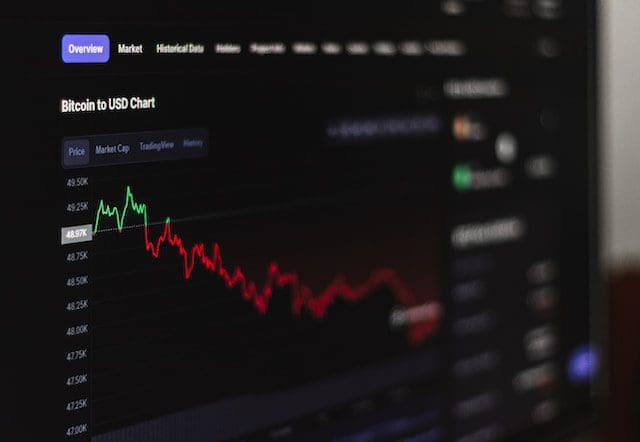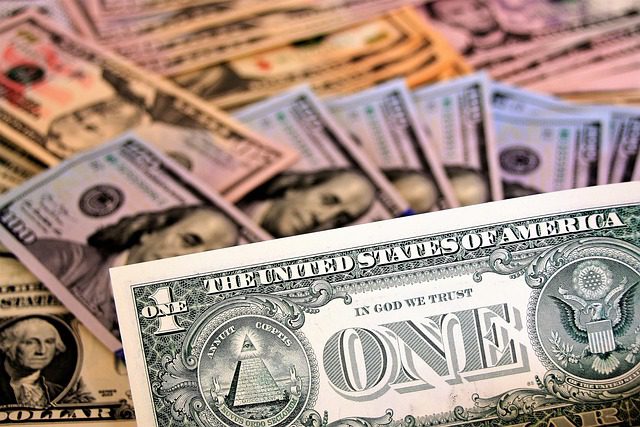The world’s financial markets are a network. So, events in one market can impact one or more other markets. For example, a deeply bearish forex market may impact cryptocurrency, dragging its prices down, and this makes it important for traders to watch markets other than the ones they trade in.
Table of Contents
Cryptocurrency Trading and the US Dollar
The cryptocurrency market is relatively new and is the latest financial market to reach global status, crossing $1 trillion in evaluation. The finance industry provides a market for crypto trading, which also means other benefits like secure cross-border payments decentralization. Although cryptocurrencies are valued in nearly every major currency today, the US Dollar (USD) remains popular among traders for expressing their currency value.
The close relationship between the USD and cryptocurrencies is also seen in the widespread adoption of USD-pegged cryptocurrencies called stablecoins. This article explores how cryptocurrency trading activities influence the USD’s dominance as the largest reserve currency.
The USD as the World’s Reserve Currency
The USD is desirable as the most significant currency, serving as a global reserve for the world’s wealth. The American Dollar was first minted in 1914; it became the world’s reserve currency in 1917 and is backed by the largest gold deposit, thanks to the Bretton Woods system. The US Federal Reserve Bank regulates the USD, which holds US-denominated reserves for itself and many other countries.
As the IMF data shows, 59% of foreign reserve banks held their reserves in USD as of 2022. The currency has enjoyed massive popularity as a reserved currency, especially during periods of inflation, but today, the focus is gradually including other potential candidates for global reserves.
Cryptocurrencies and the USD
Cryptocurrencies are digital assets that are privately issued and secured using blockchain technology. The crypto market became popular in 2013 and has grown in size and relevance because of the currencies’ decentralized nature. The introduction of stablecoins and faster payment systems have increased the adoption of cryptocurrencies and, by implication, how investors, traders, and non-traders store financial value.
The USD is often used to buy cryptocurrencies because most cryptocurrency trading platforms were found with only USD deposits. Thanks to advances in global payment systems, most brokers only began accepting local currencies in the last few years. This increased the demand for cryptocurrencies among traders around the world.
Many traders also prefer receiving their withdrawn funds in USD. Predictions expect to see traders storing their funds in USD and withdrawing only what they need in other currencies. This strategy helps to preserve value in the face of fluctuating exchange rates. In this context, the Binance USD (BUSD) price becomes a crucial factor for traders, as it directly impacts the value preservation strategy when converting cryptocurrencies to USD.
How Crypto Trading is Impacting the USD

There are four main ways that crypto trading impacts the USD.
1. Increased USD Volatility
The crypto market volatility has a knock-on effect on the USD, especially in periods of significant fluctuations. This is due to traders buying and selling or exchanging fiat USD for cryptocurrencies as they seek to profit from price fluctuations. In periods of high negative volatility, traders may sell off their crypto holdings and store them in USD form to preserve value. Still, the reverse may happen when volatility cools off and the market moves regularly. A sudden increase or decrease in the demand for USD may affect forex prices and, if uncontrolled, could reach other markets.
2. Reduced USD Influence on the Global Financial System
The adoption of cryptocurrencies is growing, and with it comes a fall in the USD’s influence. The status of the USD as the world’s reserve currency gives the United States government greater influence and political and economic advantages, such as borrowing money at a lower cost. This influence is likely to diminish with the increased adoption of cryptocurrencies and major currencies of other economies. Advances in blockchain-based cross-border payment technologies will significantly impact such adoption.
3. Increased Adoption of Cryptocurrency Investments
Crypto-based investments, such as staking, are to have more returns than traditional dollar-denominated investments, which are more conservative. As more people move towards cryptocurrency investments, there may be a corresponding decrease in reserves. For example, more traditional banking institutions are embracing cryptocurrencies, providing more funds for fiat-crypto trades. If more foreign companies start accepting cryptocurrency payments, the foreign reserves may fall as there would be reduced demand to hold the US Dollar.
4. Decreased Demand for USD
Cryptocurrencies, especially stablecoins, are becoming increasingly popular as a store of value and a means of exchange among traders and non-traders. This reduces the demand for USD as more people hold their wealth in cryptocurrencies. Stablecoins such as USDT and USDC are the dominant options. USDT has a market cap of over $84 billion and a daily trading volume of $32 billion. While this is far less than the US Dollar, the significant increase from $68.4 billion in November 2022 indicates a massive adoption of USDT among traders.
El Salvador’s case is an excellent example of how cryptocurrencies impact USD reserves, which made Bitcoin a national legal tender in September 2021. The price of Bitcoin is now a significant factor influencing the value of El Salvador’s foreign reserves.
Cryptocurrency Regulations
Cryptocurrency regulations are expected to impact the crypto market but may also affect the forex market and how foreign countries store their reserves. The status of cryptocurrencies ranges from legal tenders to recognized digital assets and outlawed financial instruments worldwide. This influences how individual countries treat cryptocurrencies and whether or not they leverage the advantages that crypto offers.
As countries seek to diversify their foreign reserves, cryptocurrencies, especially stablecoins, may play more critical roles in the global financial landscape. This is important as more people suggest governments adopt stablecoins as digital and dollar-collateralized fiat currencies to replace the current system.
Cryptocurrencies show potential to rival the forex market and play more integral roles in global finance. There are many hurdles, such as regulations and improving available technologies. Still, the influence of cryptocurrency trading on the USD’s influence as the world’s reserve currency is significant.




